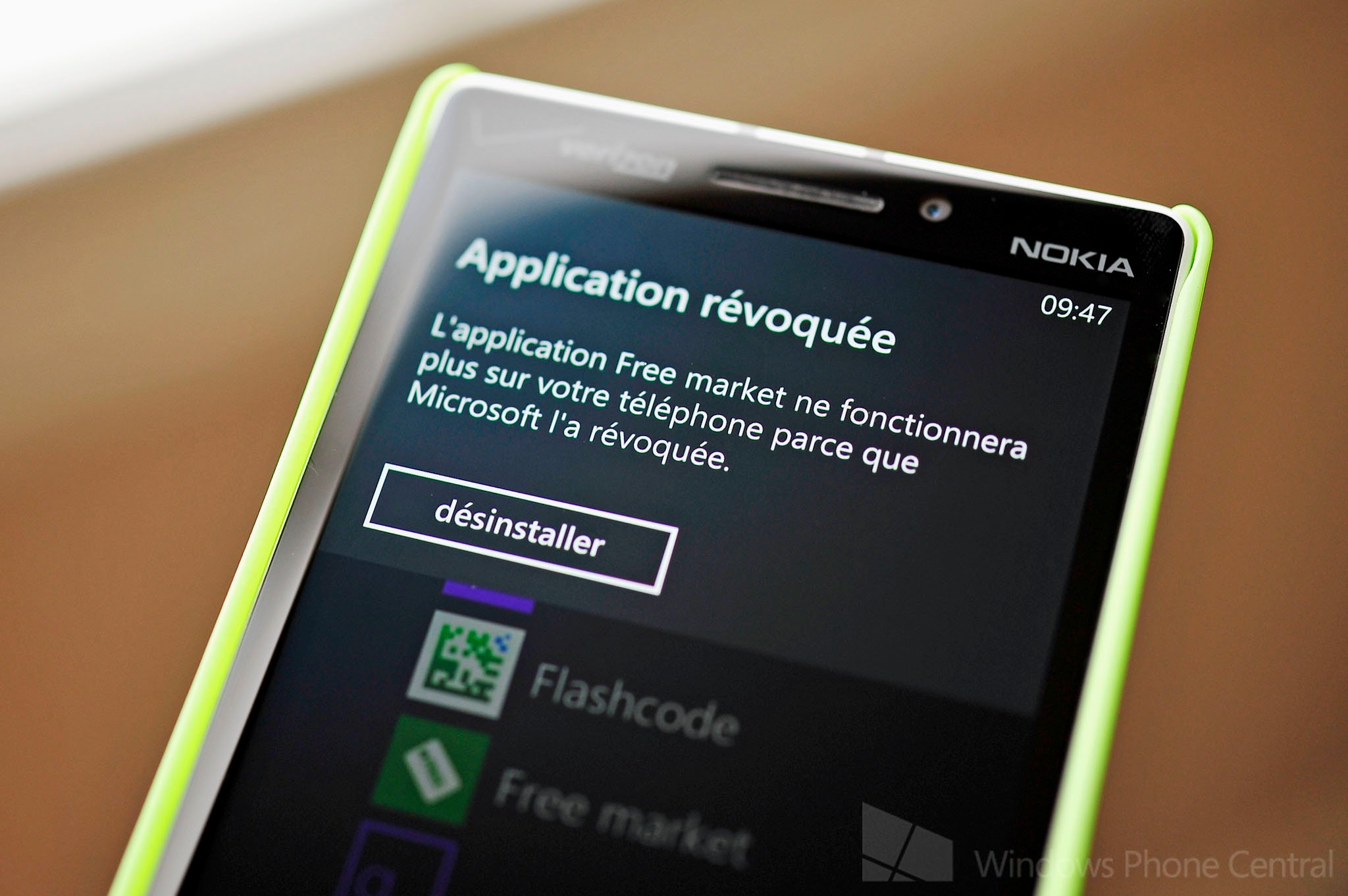Microsoft revokes Windows Phone app that undermined developers’ paychecks

In doing this job, there’s the easy news – apps, device reviews, leaks – and then there’s the hard news, like criticizing Microsoft, leaking too much or talking about illegal apps. Today’s story falls into the latter category, but it’s more about the aftermath.
Long story short, a developer named Al Gihuni released a free app called ‘Free Market’. The app did something unique: it allowed you to find an app listed in a different region, perhaps at a lower price. The idea here is that some developers price their apps differently based on the market, or sometimes they run regional sales. ‘Free Market’ though took advantage of that by letting users find those price differences with a few clicks and the app tagline – “Download paid apps for free!” – was quite inflammatory.
Developers were not pleased, to say the least.
We opted not to cover the app due to the somewhat controversial nature of the subject matter. Windows Phone already has enough issues in trying to convince developers to invest their time to make apps. And forget their time, it’s really about money, as it’s quite difficult to make a buck on such a small – but growing – ecosystem.
Still, this is certainly a grey area app as giving consumers the power to search for cheaper prices does have a nice ring to it. Getting lower prices is more of an issue for emerging markets, where many people don’t have credit cards to make Store purchases. That means they can never buy an app, so they often rely on those temporary sales and discounts.

Regardless of which side of the debate you fall on, Microsoft has evidently revoked the app from people’s phones. That’s a rare move – one of last resorts – reserved for apps that are malicious or are themselves pirated software.
For example, way back in December 2011, we reported to Microsoft a popular paid navigation app had been re-uploaded as a free app to the Store. Sure, Microsoft could just remove the app from the Store, but they took the extra step of revoking it from those who had already downloaded it, essentially mitigating any damage to the original developer.
Get the Windows Central Newsletter
All the latest news, reviews, and guides for Windows and Xbox diehards.
In fairness, Gihuni did delist the app before Microsoft was able to do so. We asked him to comment on that issue and how it transpired:
“I don't think it jeopardized the security or functionality of Windows Phone however. Developers have made their apps free in some markets by their choice, and users have always been changing their regions for these offers. My app was just a search tool, nothing more.It got popular in a few hours and got thousands of users, mostly from China and South America. I myself also put my other apps in the list. It was very useful, but developers didn't like it.I unpublished it before Microsoft revoked it, because of the negative reactions of developers…A good relationship between devs and users was important…”
For what it’s worth, Al Gihuni’s ‘Free Market’ was not malicious to the user, but it was damaging to developers looking to make money. It also looked bad for Microsoft. Earlier, Gihuni actually helped to identify a Store bug that could allow an app to bypass privacy permissions. Microsoft eventually patched that bug after we had some back channel discussions with them. We would not describe him as malevolent, just another developer trying to make a name for himself. In that sense, we’re not getting out the pitchforks, as we think sometimes devs test the waters and learn from their mistakes. And at least for now, Microsoft has put their foot down.
What do you folks think? Should apps like that be allowed on the Store?
Thanks, Fadil R., for the screenshot

Daniel Rubino is the Editor-in-chief of Windows Central. He is also the head reviewer, podcast co-host, and analyst. He has been covering Microsoft since 2007 when this site was called WMExperts (and later Windows Phone Central). His interests include Windows, laptops, next-gen computing, and wearable tech. He has reviewed laptops for over 10 years and is particularly fond of 2-in-1 convertibles, Arm64 processors, new form factors, and thin-and-light PCs. Before all this tech stuff, he worked on a Ph.D. in linguistics, performed polysomnographs in NYC, and was a motion-picture operator for 17 years.